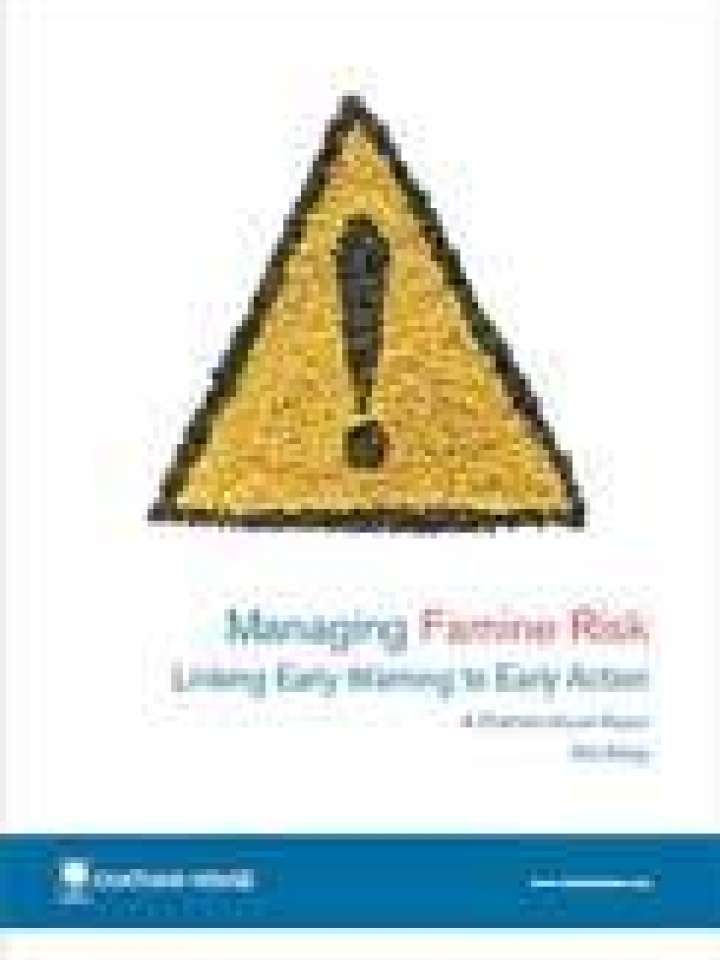Managing famine risk: linking early warning to early action
This document reports on the project Translating famine early warning into early action, which defines famine as a process beginning with a particular shock or stress such as drought, precipitating a livelihood crisis that may eventually lead to a humanitarian emergency. It explores the barriers that hinder appropriate response to early warning of slow-onset food crises. Its purpose is to identify problems and consider opportunities to address the challenges of preventing and responding to humanitarian crises with scarce resources.
Among its key findings, the report asserts that risk reduction efforts are not commensurate with the scale of risk and that famine early warning systems have a good track record of predicting food crises but a poor track record of triggering early action. Its recommendations include: (i) improvement of the official early warning capacity and effectiveness, including a review of existing capabilities and needs in at-risk areas, capacity building and scientific approaches; (ii) enabling vulnerable communities to take early action themselves; (iii) operational reform; (iv) funding reform; and (v) institutional reform.
Explore further
